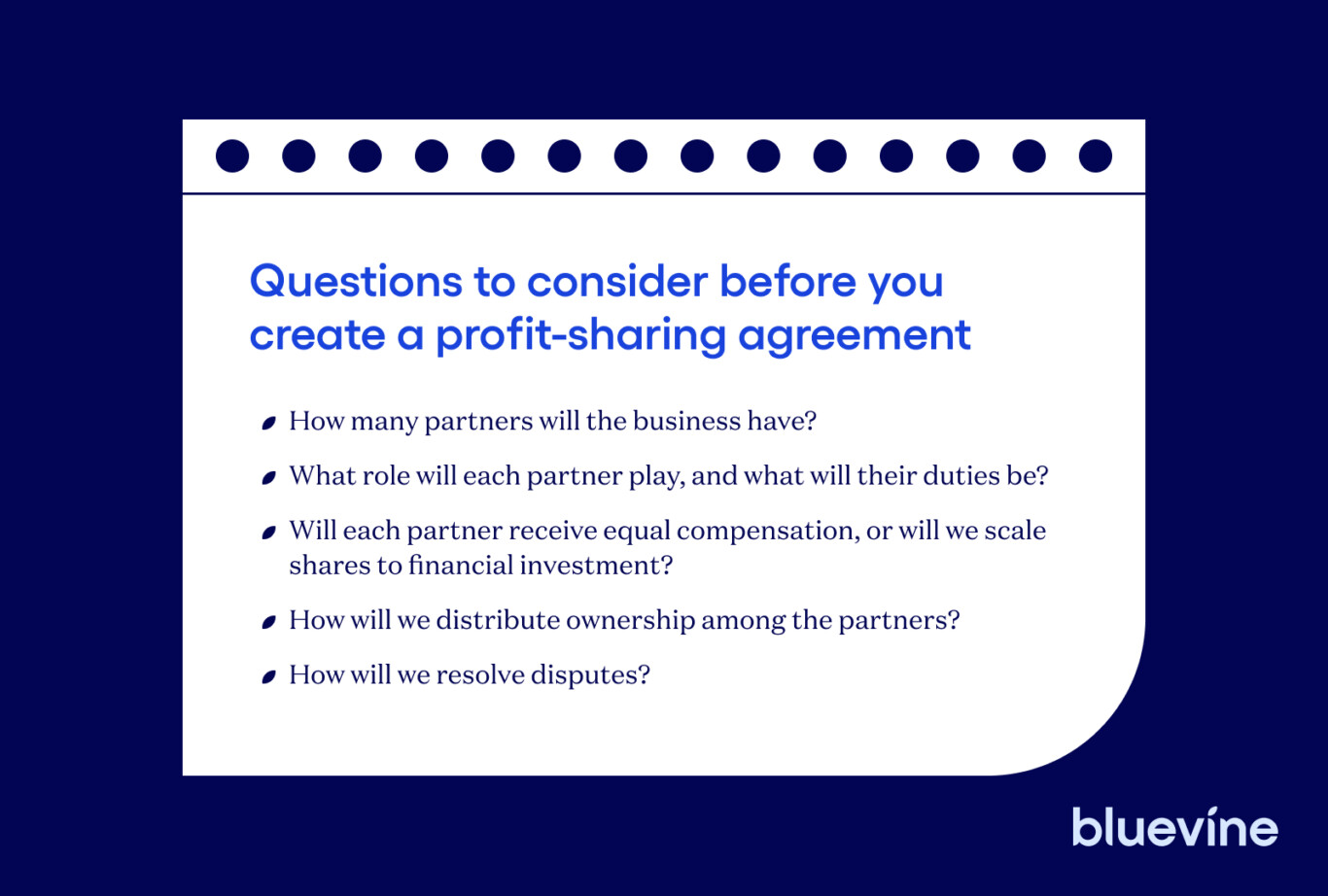For a number of reasons, small business owners often hesitate to go solo. While a partnership may ease the workload, it also means that partners must negotiate how to split responsibility and profits, which can be challenging. Fortunately, there are some well-established principles that’ll help you create a fair profit-sharing agreement that satisfies your partners.
What is a business partnership?
A business partnership is a legal agreement between individuals or companies to jointly own a business. Depending on the agreement, profit may be distributed equally or scaled to each partner’s contribution.
Types of business partnerships
There are four main types of business partnerships, differentiated by how different partners share responsibility. Partners are legally classified by their liability—a general partner is fully responsible for the business’s debts, while a limited partner is only liable up to the amount they’ve invested in the company.
- In a General Partnership, general partners oversee day-to-day operations together and share full liability.
- In a Limited Partnership (LP), one general partner oversees operations, while other partners are limited partners who aren’t involved in operations.
- In a Limited Liability Partnership (LLP), all partners are limited partners who oversee operations.
- In a Limited Liability Limited Partnership (LLLP), one general partner oversees operations, but is afforded special limited liability. Other partners are limited partners who aren’t involved in operations.
Benefits of having a business partner
Financial flexibility
Starting a business by yourself means you’re fully responsible for all assets and debts. Partnerships lighten this burden because you and your partners can pool financial resources to grow your business faster and more sustainably. Alternatively, if one partner’s finances are momentarily unstable, others can still support the business.
Shared responsibility
Business partners bring unique experiences, perspectives, and resources. To create an effective, well-rounded partnership, find partners who compliment you and aren’t redundant. This will strengthen your business’s operations and therefore help safeguard you from losses.
More borrowing power
Combining partners’ credit scores and assets makes it easier to qualify for business lines of credit or loans, so if you enter a strong partnership, you’ll be able to borrow more funds.
Tax advantages
When you split income, you and your partners will pay less in individual taxes. Business partnerships don’t pay income tax—you and your partners will be taxed on your profit share at your personal income tax rate.

How to create a fair profit-sharing agreement
1. Put all agreements in writing
Write down everything you and your partners agree to. Outline roles and responsibilities for each general, limited, equity, salaried, senior, and junior partner. Decide who has decision-making authority and who contributes assets (e.g., cash, property, and equipment). Whenever you write or amend your agreement, it’s prudent to involve a lawyer and/or accountant.
2. Define your profit sharing split
Decide how you’ll divide your profits—this is most often based on roles or financial investments. Profits are usually split evenly in equal partnerships, but in unequal partnerships you’ll have to consider how to convert risk, responsibility, and duties into profit share.
3. Revisit your agreement regularly
Life circumstances and market conditions inevitably change, and your partnership agreement will have to adapt. Reevaluate your agreement at least annually, or immediately if you bring on a new partner or an existing partner wishes to adjust their responsibilities or status.
High-yield business checking that lets you securely share access with co-owners and partners.
